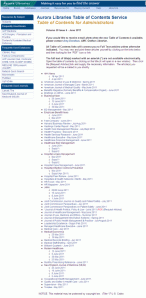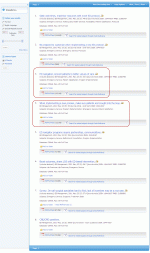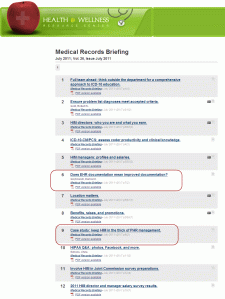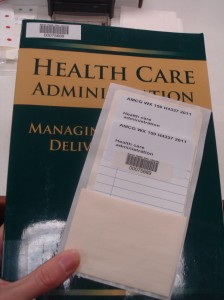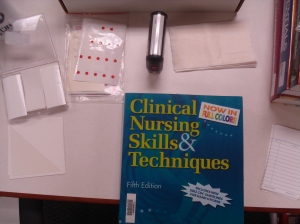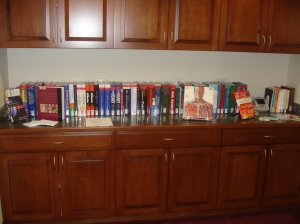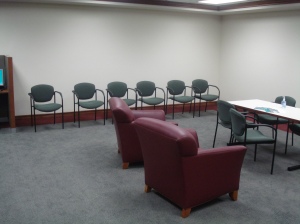(Welcome to the blog I started 12 years ago as a library science student. It’s been awhile.)
I’m now a second year genetic counseling student, and a student member of the National Society of Genetic Counselors. I’m new to the organization and its structure, and the culture of its members as a whole. But I’m still a member, and have been for over a year. I’ve taken advantage of that membership to network and to get access to educational opportunities related to specific disorders and on topics like pharmacogenetics. And as a member, while I respect how NSGC communicated their decision to not make any statements on the Graham-Cassidy healthcare bill, I feel a need to speak out and share, as an individual, why I’m against that decision to not to take a stand.
(These are the two pieces of legislation that are at the center of this: Graham-Cassidy and a bill for genetic counselors to be recognized as providers under Medicare, known as Access to Genetic Counselors.)
First, I’d like to challenge a few points in the NSGC email itself.
1. “The outlook for the [Graham-Cassidy] bill is bleak.”
But it could still pass. With only two known confirmed “no” votes, Republicans could still get the legislation passed with 50 votes + Vice-President Pence. Even if the bill fails, this passive stance feels like gambling with the healthcare of an estimated 32 million people.
2. “To maximize the likelihood of success for our [Access to GCs] bill, and more importantly, to ensure improved patient access to our services, we are focused on this effort and not broader health reform.”
As I see it, the proposed bill isn’t reform. It’s a step (or many steps) backward that would affect our current patients as well as any potential patients. I am absolutely convinced that if this bill passes, access to our services would be impacted, and so this statement can actually be used to justify exactly why the organization should come out against Graham-Cassidy. (Laura Hercher’s post at the DNA Exchange does a much better job of arguing the finer points of this.)
I can imagine and appreciate that many individuals have poured their hearts and souls, not to mention time, into getting licensure (which I absolutely support, and have stated my commitment to actively help), but this feels like not seeing the forest for the trees.
3. “Our reach is limited and this will ensure we are using our voice where it is needed most.”
Why should we sell ourselves short? We are a national organization, with influence on patient advocacy groups, the American College of Medical Genetics, and all the millions we reach that we were so excited to learn about during my first annual NSGC meeting in Columbus! We may not be the American Medical Association. But I think I can make an argument that our reach is broader than the National Organization for Rare Diseases just by the nature of the places where genetic counselors are found. And if that’s a misinterpretation of “limited” and the issue is rather that NSGC doesn’t have the resources to put out a statement, I think there are plenty of members who would volunteer to draft and vet a statement, and who could do it quickly.
And I think one of the things I’m struggling with the most in this statement is the idea of need: it’s an ethical question that I don’t feel well equipped to articulate, but at the bottom lies this: how many people will benefit from GC licensure, vs how many will be harmed by Graham-Cassidy?
And ultimately, I truly believe we don’t have to choose between the two. We can continue the fight for recognition and licensure while taking a stand against Graham-Cassidy.
And here’s how I came to that conclusion, asking myself the same question I’ve been taught to ask patients struggling with a decision around testing: how would I feel with each result?
So if NSGC doesn’t take a stand on Graham-Cassidy (“G-C”) and:
- G-C passes but our Access bill doesn’t.
- Not only are we mourning a major setback for our profession, but we’re on the wrong side of history. And why should our patients fight for us the next time around when we didn’t support them? Some of them will, of course, because some of them will realize the importance of access to genetic counselors and will have the resources to stand with us. But many of them will have to spend more time and effort getting access to much more basic care. Never underestimate the power of trust – genetic counselors understand that better than many.
- Alternatively, we could have stood against G-C, and now we’re all in the continuing fights together (and let’s face it, some genetic counselors and their families would likely have their own healthcare affected by G-C).
- G-C passes, and so does licensure.
- Good for us! And now we can start serving more people…in a smaller pool of those who have access to coverage? And what services are actually covered? We’re really not helping ourselves.
- Neither passes.
- We still have all the states who have legislature for licensed genetic counselors, and all the states still working on it. We will have to keep fighting for recognition, but if our bill went down because we stood against G-C, then there are bigger issues we need to face all together (and I tend to think that’s true regardless). And our patients (and friends and family and selves) at least still have the protections of the Affordable Care Act.
- G-C fails, but licensure passes.
- This is what NSGC suggesting would be the case, in a way. Yay, the ACA is in place! Yay, we’re recognized as billable providers! But hey – there’s still some damage done. We’ve set a precedent of putting our own professional interests first, above the very people we’re serving. That’s simply how I feel, deep down. And I don’t like it. But will I forget? After all, everything ended up ok. I think that’s why I felt like I had to share these thoughts.
And in all of these outcomes, there is the “what if.” What if NSGC had put out a statement that would have, if not directly changing a senator’s mind, then perhaps indirectly gotten them there? We could be part of growing the snowball rolling down the mountain, one that has the potential to hit its target. Instead, we’re a lump, lying in the path and doing nothing except possibly making the snowball bounce and miss some additional accumulation. (I’ve started using more analogies in my life since starting my genetic counseling journey. I promise I’ll work on getting better at them. But you get the idea.)
I’ll end by saying these are my thoughts as an individual. I welcome any and all responses. And I’m going to quote from Senator John McCain’s statement today:
I think the world of them*. I know they are acting consistently with their beliefs and sense of what is best for the country. So am I.
*NSGC, its leaders, and all its members, of which I am one.
Thanks for listening.

